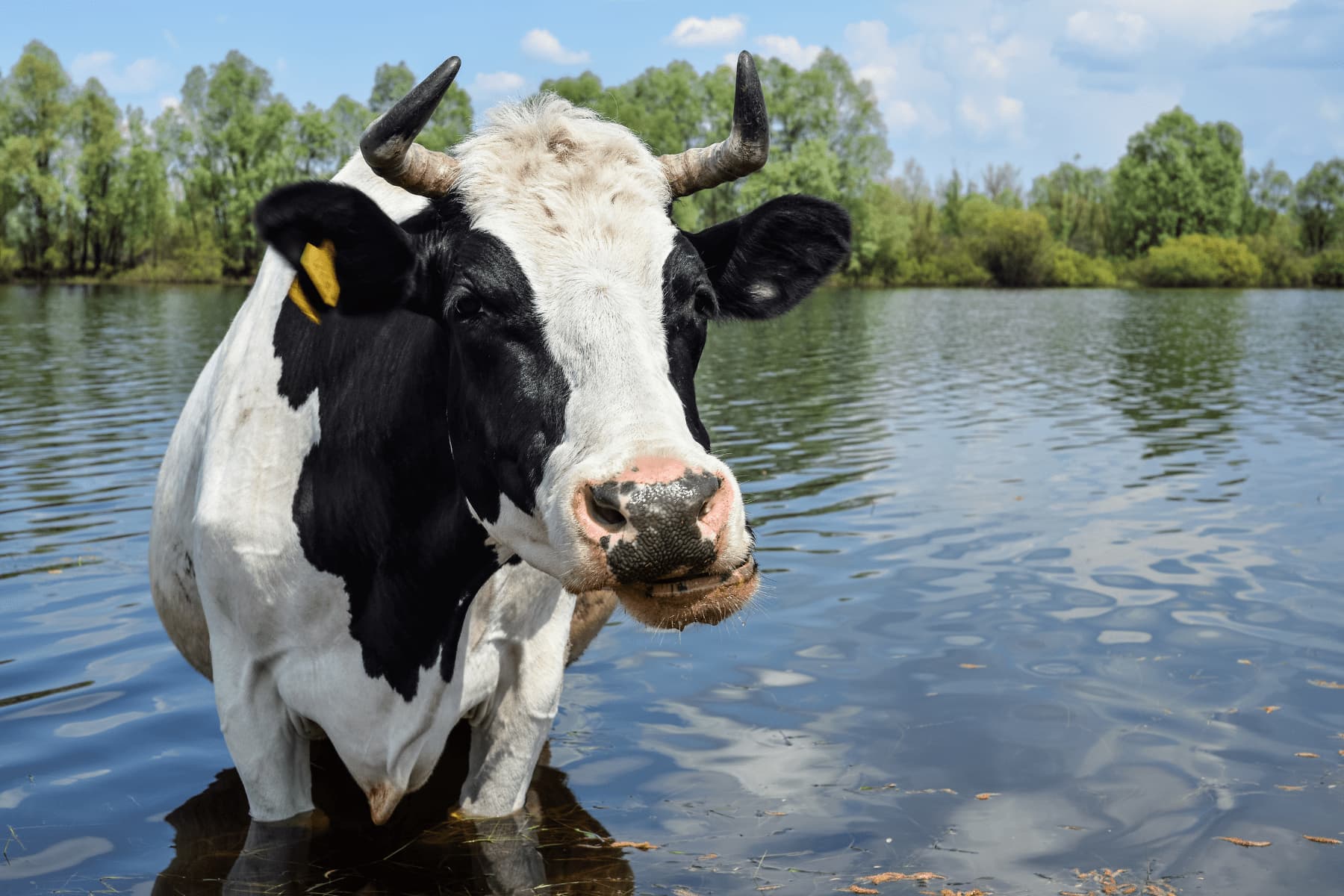Using digestate instead of chemical fertilisers can help farmers comply with regulations and show dedication to their communities. In this article, we’ll explore what is digestate and how using it helps farmers better manage waste and nitrates, while decarbonising their operations.
Read more about the benefits of using digestate for farmers and local communities in our article.
Nitrate pollution of ground and surface water is a concern for farming communities everywhere. It happens when nitrogen from chemical fertilisers and raw animal manure leaches into the soil and enters groundwater or nearby lakes or streams.
When nitrate levels exceed allowable levels, groundwater becomes unfit to drink. In surface water, nitrates can lead to low oxygen levels, biodiversity loss, algae overgrowth, and other environmental concerns. One recent example of this is the blue-green algae which has polluted the waters of Lough Neagh and 60 other locations in Northern Ireland.
As such, governments limit how much nitrates farmers can release into the environment. These regulations often restrict the use of chemical fertilisers and cap how much manure farmers can dispose of on each hectare of land.
What is digestate and how does it enable sustainable nitrate management?
Digestate is a byproduct of the anaerobic digestion (AD) process used to produce biogas and biomethane. The nitrogen in digestate is easier for plants to absorb than synthetic fertilisers and slurry. So, when applied to crops at appropriate times and in suitable quantities, digestate can match plant nutrient uptake more efficiently, reducing the risk of excess nitrates entering bodies of water.
Nitrogen stripping is an optional component in the biomethane upgrading process that removes nitrogen from digestate to generate sustainable fertiliser. Farmers can then apply it to crops independently of digestate to ensure maximum uptake and productivity.
Strategically using digestate can enable farmers to more effectively meet regulatory requirements. By demonstrating compliance through sustainable practices, farmers can avoid potential penalties and are likely to qualify for incentives or programmes to support sustainable agriculture.
Practising sustainable agriculture in this way can also enhance a farm’s image within the community and amongst consumers. Community members who know farmers are taking action to protect their watersheds are more likely to offer the farmer their business.
Consumers are also increasingly demanding more environmentally friendly and sustainably produced food. A commitment to using sustainable inputs like digestate can give farmers a competitive edge through increased consumer support and access to markets requiring sustainability certifications or eco-friendly labels.

Use digestate to manage waste and help build a circular economy
Unlike a traditional linear economy that follows a “take, make and dispose” model, circular economies aim to eliminate waste and promote continual resource use.
Farmers can promote the principles of a circular economy by transforming their organic waste into digestate , which minimises waste, maximises resource use, and returns valuable nutrients to regenerate the soil.
This approach also helps farmers comply with waste management regulations by reducing how much waste they produce, mitigating waste disposal issues and costs, and minimising the environmental impact of organic waste.
For example, by converting animal slurry into digestate through biomethane production, farmers have less manure waste to manage on their land. This helps them comply with regulations limiting the amount of manure they can apply to their land and avoids the cost of transporting it elsewhere for disposal.
Decarbonising farming activities
Using digestate instead of chemical fertilisers can also dramatically reduce greenhouse gas emissions from farming activities.
Manufacturing chemical fertilisers requires carbon-intensive industrial processes and mining. These activities emit the equivalent of 2.6 gigatonnes of carbon each year. That’s more than the global aviation and shipping industries combined.
Replacing synthetic fertilisers with digestate enables farmers to significantly reduce their carbon footprint. Replacing ~1 tonne of synthetic fertiliser with digestate can keep the equivalent of ~4 tonnes of carbon from entering the atmosphere. That’s equal to eliminating ~20 percent of Ireland’s annual carbon dioxide emissions.
Using digestate as fertiliser also helps complete the circularity of greenhouse gas capture in the biomethane production process. The organic matter in digestate improves soil structure and increases its capacity to store carbon. This process increases the long-term carbon-storage capacity in soils and essentially removes it from the atmosphere by using soil as a carbon sink.
Digestate plays a key role in making biomethane a carbon-neutral or even carbon-negative fuel.
CycleØ Your Partner in Renewable Gas Solutions
At CycleØ, we develop, own and operate biogas plants across Europe, working towards our mission to turn waste into renewable natural gas. We are a biogas plant developer that understands the intricacies of anaerobic digestion.
Contact us today to explore how we can partner to turn your waste into a valuable renewable energy resource and contribute to a greener future.